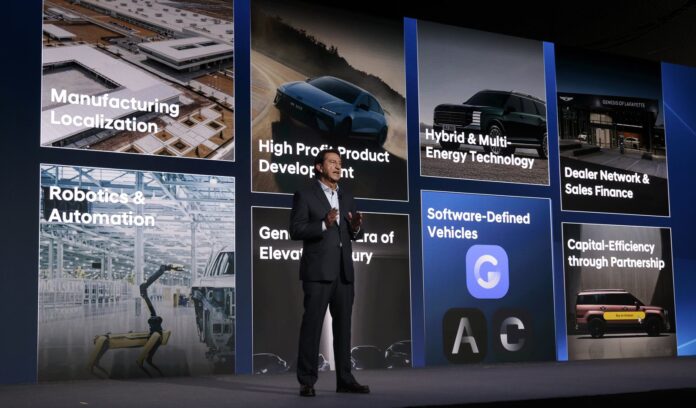As the Chinese brands keep expanding their global presence, Hyundai Motor holds a steady course to maintain its position in the auto industry. Facing the new and more competitive environment, the Korean automaker believes it has what it takes to stay among the leading players.
“In an industry facing unprecedented transformation, Hyundai is uniquely positioned to win through our unmatched combination of compelling products, manufacturing flexibility, technology leadership, outstanding dealer partners and global scale,” said Jose Muñoz, President & CEO of Hyundai Motor Company since 2019.
“We are delivering comprehensive electrified portfolios across all segments, localizing production in key markets, and leveraging breakthrough technologies from Software-Defined Vehicles to next-generation batteries. Our ability to adapt quickly, combined with the power of Hyundai Motor Group and 50+ affiliates and our unwavering commitment to customers, will enable us to continue unlocking tremendous value for our stakeholders. It’s a great time to be with Hyundai,” he declared.
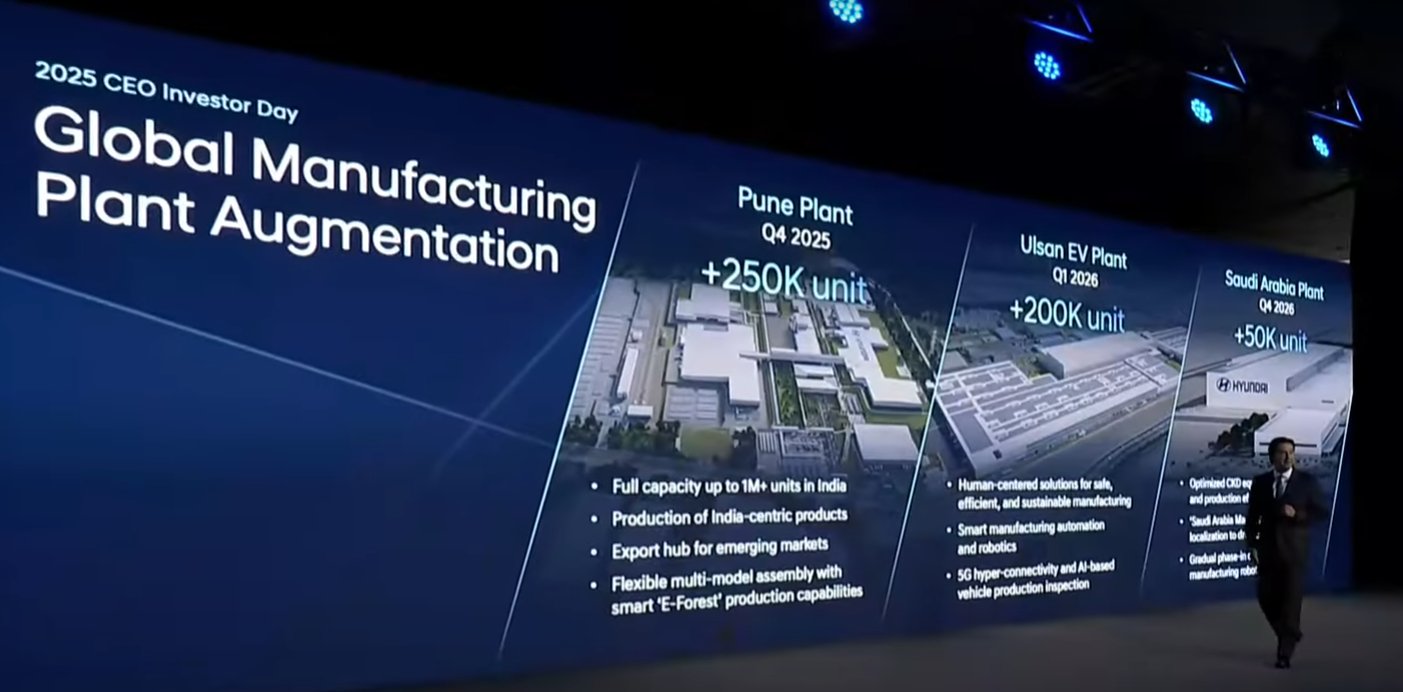
At its first CEO Day held in New York, the first time the event has been held outside Korea, Munoz provided an overview of the product plans and numbers up to the end of this decade. Production outside Korea will be increased significantly, with 80% of vehicles for the US market to be produced in that country by 2030.
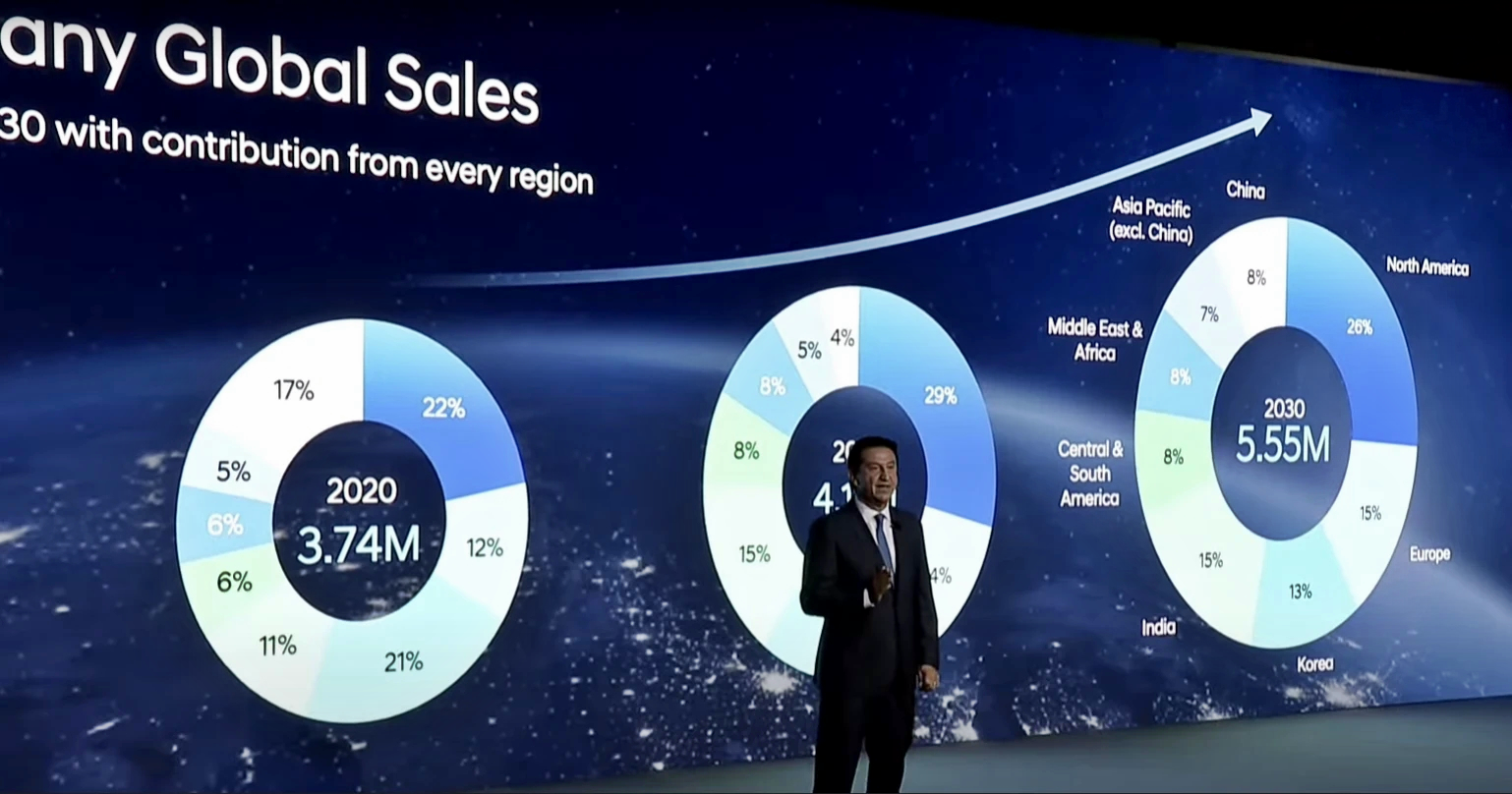
5.55 million vehicle sales by 2030
The automaker aims for 5.55 million vehicle sales globally by 2030, with electrified vehicles to account for 3.3 million units. To compete more effectively in the EV segment, Hyundai Motor will offer EVs with more regional customisation in markets such as Europe, India and China.
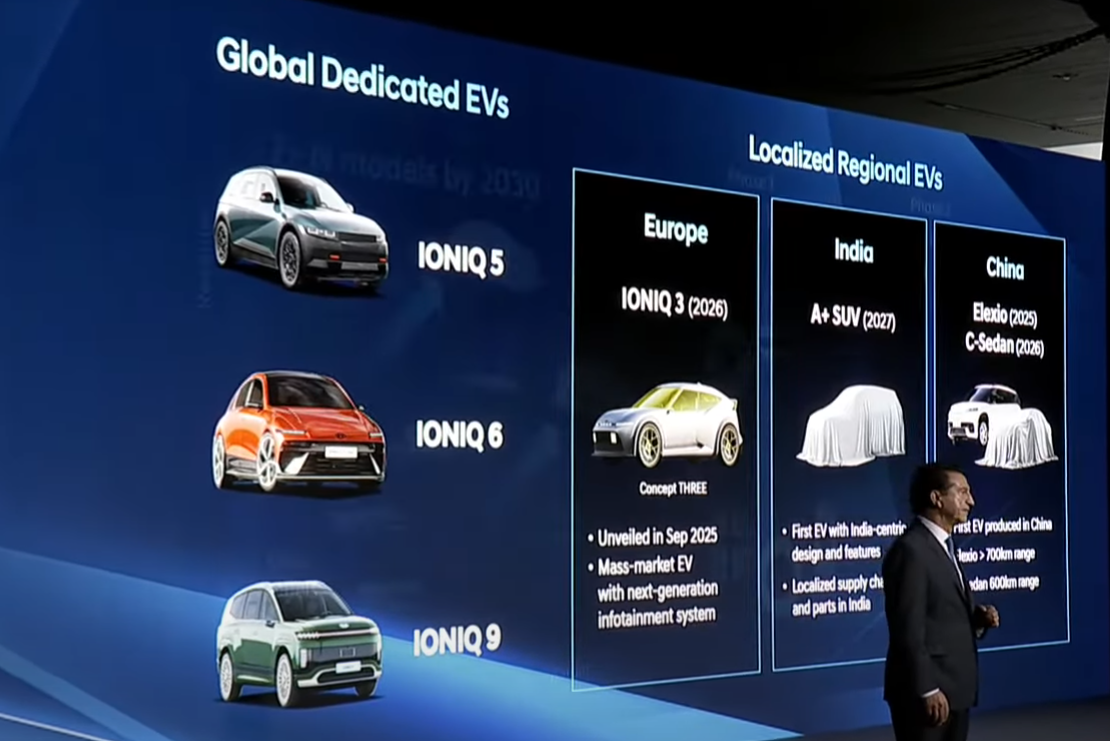
The IONIQ 3, for example, will highlight Hyundai Motor’s aim to target European mass-market customers with next-generation infotainment systems. India will receive the country’s first EV designed specifically for local drivers, while the market will also benefit from a localized supply chain. China will get the locally produced Elexio SUV and C-segment electric sedan, marking a major milestone in the automaker’s Chinese market commitment.
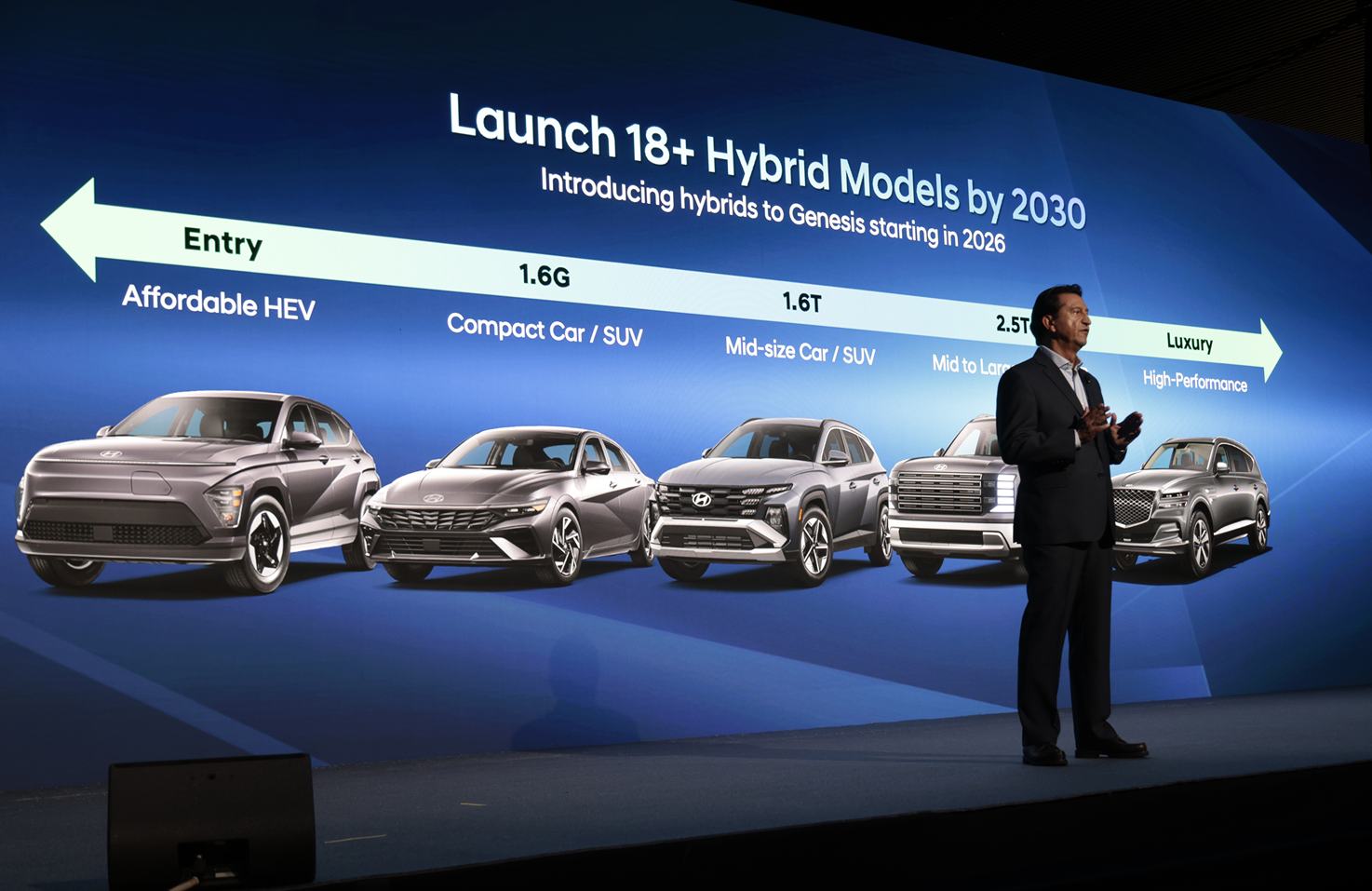
These additions will complement the existing EV line-up – currently consisting of the IONIQ 5, IONIQ 6 and IONIQ 9 – that give customers a broad range of options in global markets.
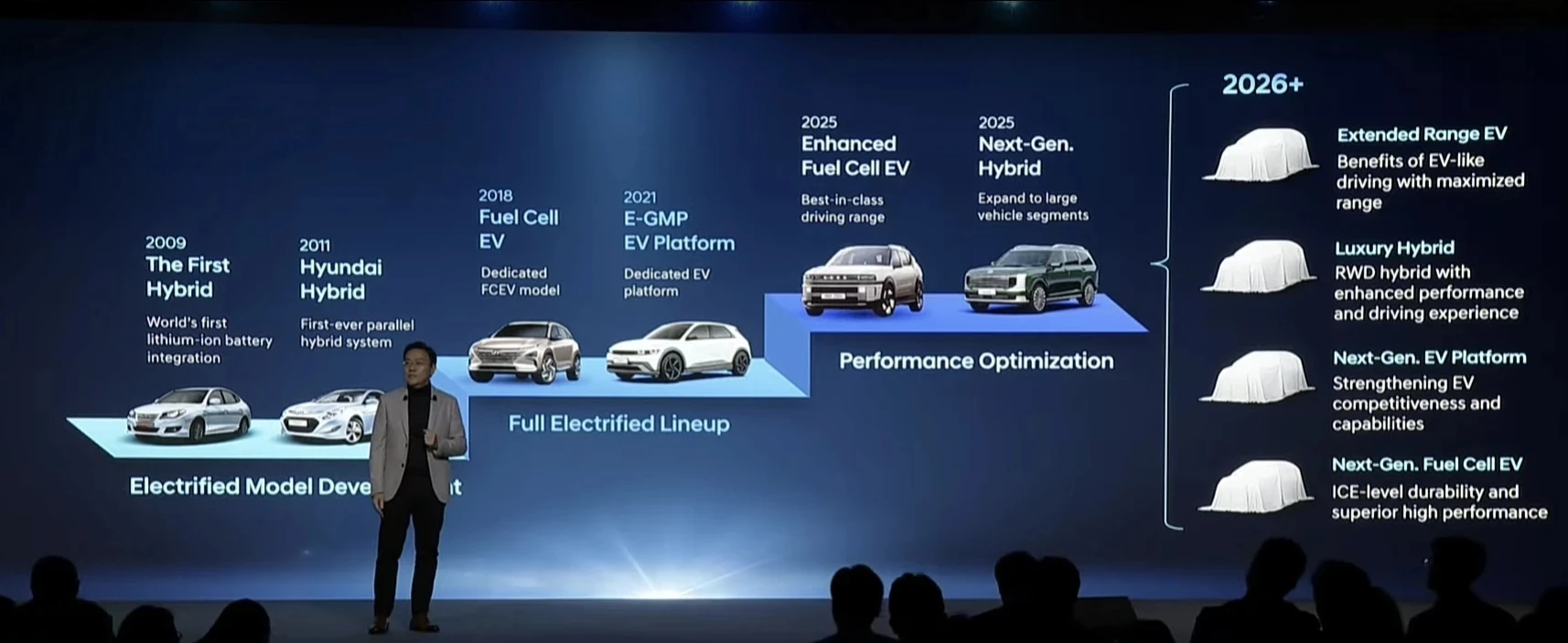
Extended Range EV models
Besides expanding its hybrid electric range to more than 18 models by 2030, Hyundai Motor will also launch Extended Range EV (EREV) models from 2027. Operating with a small engine to recharge the battery and having propulsion only by the electric motor, the EREV models can bridge the transition to full electrification. The typical range for such vehicles is expect to be more than 950 kms.
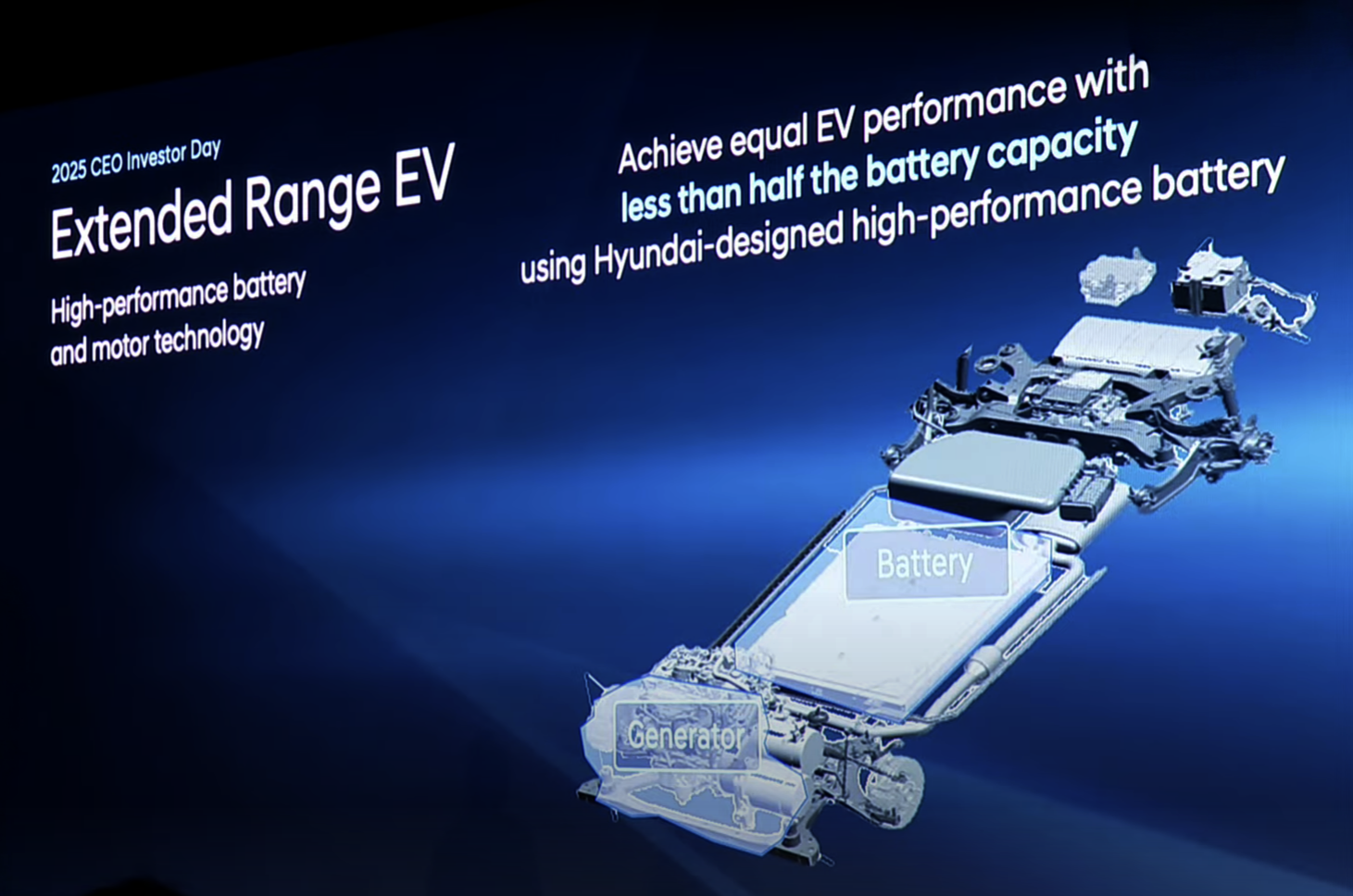
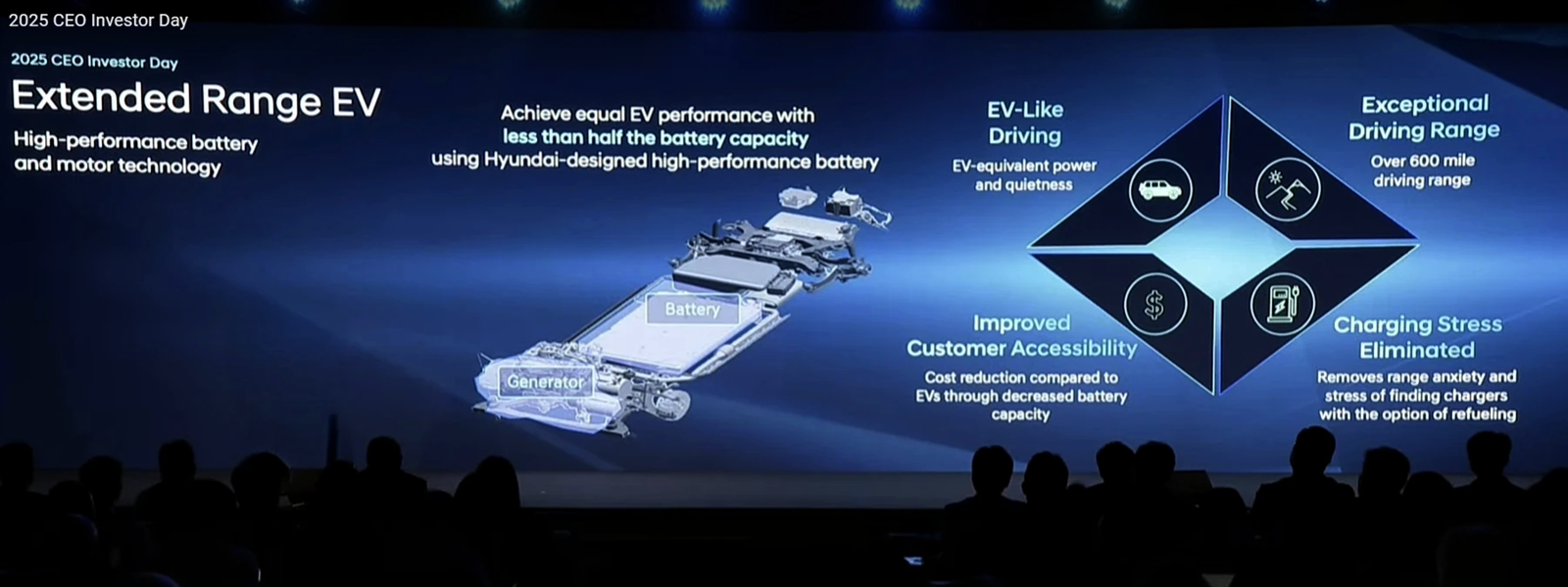
For enthusiasts, motoring fun will still be available with the N line-up. This range of high-performance variants of many models will expand to more than 7 models by 2030 with a target of 100,000 units being sold.
![Hyundai IONIQ 6N EV [2025]](https://www.motaauto.com/wp-content/uploads/2025/09/Hyundai-IONIQ-6N-EV-2025.jpg)
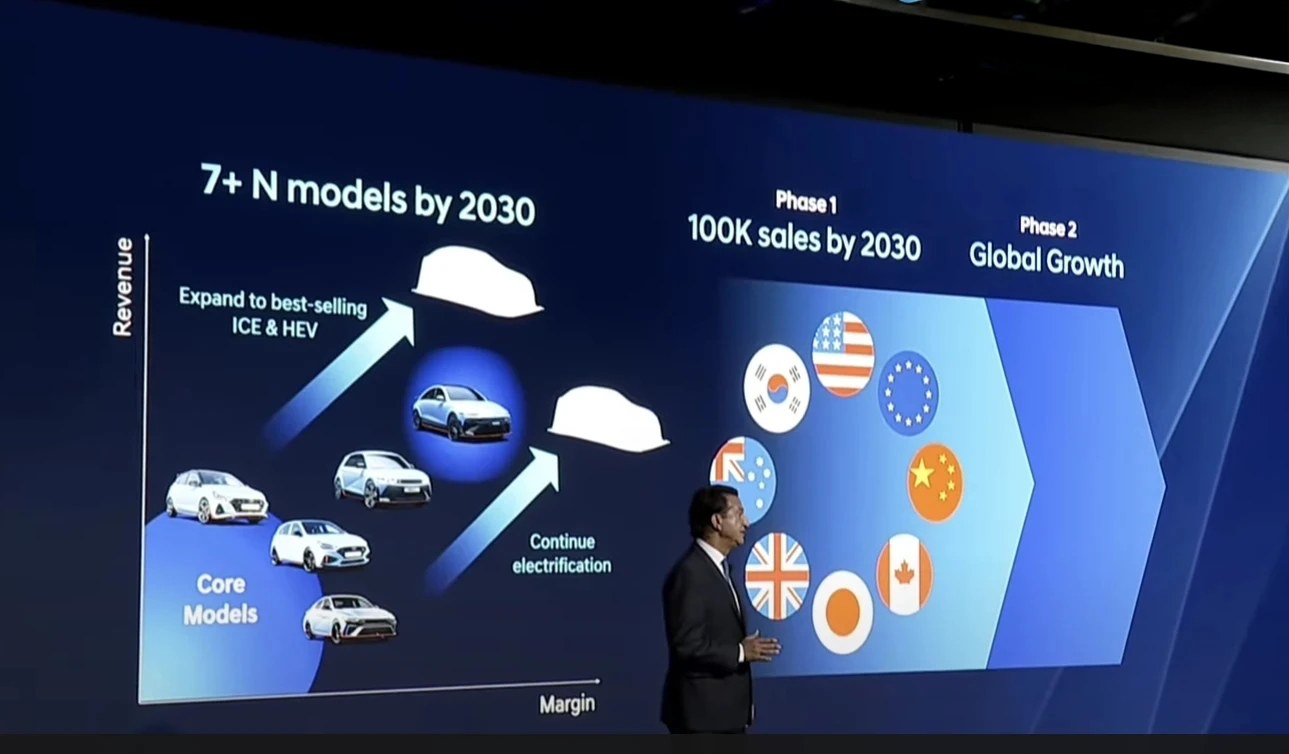
Another pick-up coming
The Korean automaker has been looking at the pick-up truck market as far back as the early 2000s. However, it has not pitched a competing model in the segment that the Japanese brands have been dominant in. Before 2030, it will launch its first mid-size pick-up truck in North America, targeting one of the largest segments in the industry. Since launching the Santa Cruz in 2021, the company has gained valuable experience and brand presence, positioning it strongly to broaden its reach in the heart of the US market.
![Hyundai Santa Cruz [2023]](https://www.motaauto.com/wp-content/uploads/2024/10/Hyundai-Santa-Cruz-2023-scaled.jpg)
In the commercial vehicle segment, Hyundai Motor will expand its portfolio in the North American market. This includes existing XCIENT Fuel Cell Trucks and Hyundai Translead trailers, along with plans to enter the electrified large van market. These offerings will leverage the company’s existing commercial vehicle production hubs to support sustainable logistics solutions.
![Hyundai XCIENT Fuel Cell Vehicle truck [2024]](https://www.motaauto.com/wp-content/uploads/2025/09/Hyundai-XCIENT-Fuel-Cell-Vehicle-truck-2024.jpg)
The automaker also has a strategic alliance with General Motors which was first announced in September 2024. With this alliance, both automakers will leverage their complementary scale and strengths to reduce costs and bring a wider range of vehicles and technologies to customers faster.
The first of these will be 5 co-developed vehicles launching as early as 2028. Hyundai Motor expects annual sales of these models to exceed 800,000 units once production is fully scaled. The line-up will include electric commercial vans for the North American market, as well as compact vehicles, compact SUVs and compact and midsize trucks for Central and South America.
What about Malaysia?
While recognising Malaysia as important, Hyundai’s future plans remain vague. The only significant development in the 33 years the Korean brand has been in Malaysia has been the establishment of Hyundai Motor Malaysia as a direct subsidiary of the automaker. This means direct involvement in its business, instead of leaving it to local business partners.
Thus far, since Hyundai Motor Malaysia was officially launched in June 2025, there have been updates of existing products, with 7 locally-assembled models planned over the next 5 years. In the medium-term, 30% of production is targeted for export to other markets in the region. There is also a commitment to make key improvements across its network in coming years, as well as expand the number of outlets to 25 by 2030.

At the end of 2024, Hyundai Motor had announced a local production-related plan to invest RM2.16 billion in Malaysia. It was not explained if this would involve upgrading its assembly facilities at Inokom in Kedah, where some of its models are currently assembled, or to have its own factory. Interestingly, Munoz did not mention this investment or production plan as part of his presentation.
“With the establishment of Hyundai Motor Malaysia, we are bringing the strength and agility of a global brand closer to home. This isn’t just a new chapter — it’s a long-term commitment to Malaysia as a strategic hub in ASEAN. Backed by innovation, vertical integration, and purpose-driven growth, we look forward to building with our partners, serving our customers, and contributing meaningfully to Malaysia’s economy,” said Eric Lee, President of Hyundai Motor Malaysia when the company was introduced to the media.

